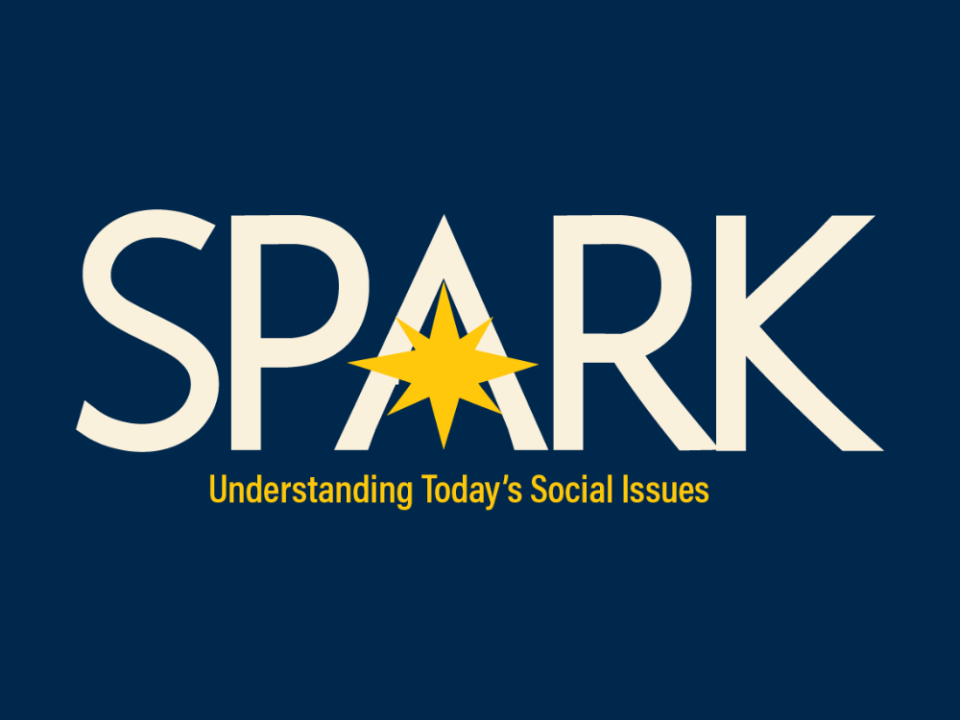- About
- News
- Events
- Initiatives
- Anti-Racism Collaborative
- Change Agents Shaping Campus Diversity and Equity (CASCaDE)
- Diversity Scholars Network
- Inclusive History Project
- James S. Jackson Distinguished Career Award for Diversity Scholarship
- LSA Collegiate Fellowship Program
- University Diversity & Social Transformation Professorship
- Publications & Resources
- About
- News
- Events
- Initiatives
- Anti-Racism Collaborative
- Change Agents Shaping Campus Diversity and Equity (CASCaDE)
- Diversity Scholars Network
- Inclusive History Project
- James S. Jackson Distinguished Career Award for Diversity Scholarship
- LSA Collegiate Fellowship Program
- University Diversity & Social Transformation Professorship
- Publications & Resources
The Social Action, Leadership, and Transformation (SALT) Model
December 22, 2017MVisible Voices featured in the Michigan Daily
February 1, 2018Scholar Story: Nia Heard-Garris
"Racism affects us all. Specifically it affects our health. As long as we continue to promote the status quo of racial hierarchy, we're all going to be unhealthy."
How does your consumption of media that portrays racism impact your health? According to Nia Heard-Garris, MD, it’s not good.

Dr. Heard-Garris is a pediatrician and an instructor in the Department of Pediatrics at Feinberg School of Medicine at Northwestern University, and also in the Division of Academic General Pediatrics and Mary Ann & J. Milburn Smith Child Health Research, Outreach, and Advocacy Center at Ann & Robert H. Lurie Children’s Hospital of Chicago. Her interest in child exposure to racism led to a systemic review on transmitting trauma in children, and what she terms vicarious racism — racism not that children experience themselves, but they witness or hear about or see some other way.
This interview has been edited for clarity and length.
What is your research focus?
My research interest revolves around stressors. In the macro and micro level stressors of kids. I'm trying to understand how stress really gets under the skin and affects children's health. Right now I'm examining how stress impacts cardiovascular health in kids. One of the things I want to know is before children become adults and have massive MI's or heart attacks, how does stress impact their cardiovascular health. What can we do, and what are those stressors that lead to poor long-term health outcomes into their adulthood.
One of my main focuses is structural racism. I feel like a lot of researchers miss that when thinking about stress in children. Structural racism is extremely important when thinking about making interventions and addressing the health and well being of children to impact policy level changes.
What prompted you to examine this topic?
I was very early into my pregnancy with my son. I was a pediatric resident and I was kind of in the midst of thinking about being a new mom and what that would mean.
And in the context of that, Trayvon Martin happened. Trayvon Martin was an African American teenager in Florida visiting his father and on his way back home from the store, he was shot and killed. Even in the safety of his home, he was perceived as a threat. That really bothered me. I kept thinking, I'm bringing a black male into this world. I felt hopeless and kind of irresponsible. I thought to myself, if I'm feeling like that, maybe other parents and other children may feel like that, too.
How does that stressor and other stressors like that hurt people's health and what can we do about it as physicians, as researchers? I was in a big international city when I was in my PhD residency and nobody talked about what happened with Trayvon. If we as pediatricians who care for kids and promote child health everywhere we go, if we're not even comfortable to have those conversations, then who is?
And so I thought that pediatricians and physicians at large should really take a hard look at racism and how that affects the health of kids and the health of their caregivers and communities.
Is there anything else you’d like to add?
One of the things that really always strikes me is that doing racial-based scholarship and focusing on racism is somehow considered less rigorous and not taken as seriously, because I have a vested interest because I'm a person of color, and I really reject that. I think that this work is just as important, if not more important, than other work out there, and we need to get a base of people that understand that, fund that work, praise that work, and let it continue on. I think stress in child health is so important, but racism that perpetuates the stress and other stressors is something that we all need to really look at, because again, it affects us all, not just communities of color.
Are you interested in Dr. Heard-Garris's work? Visit her profile here.




